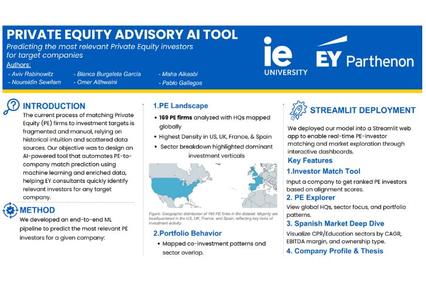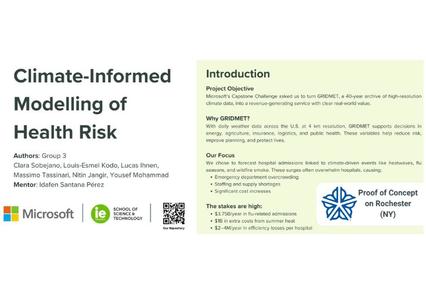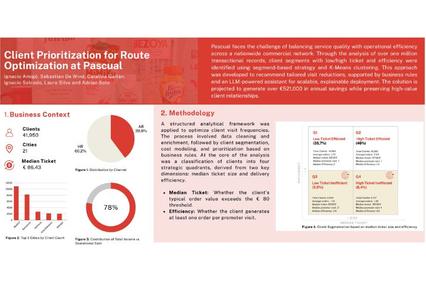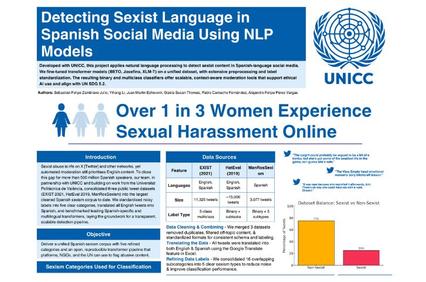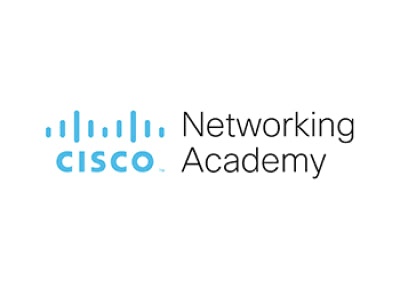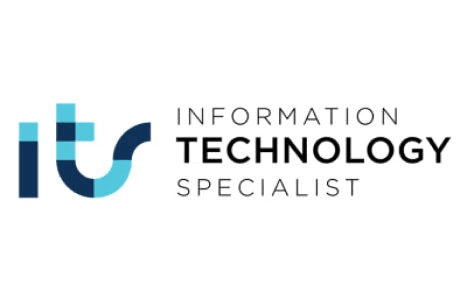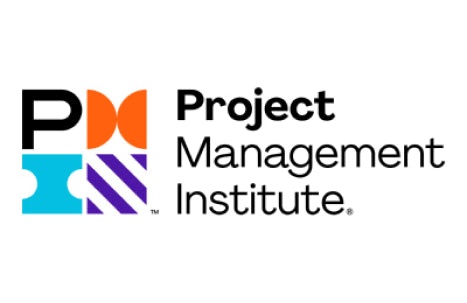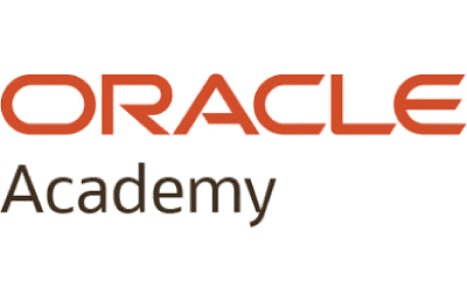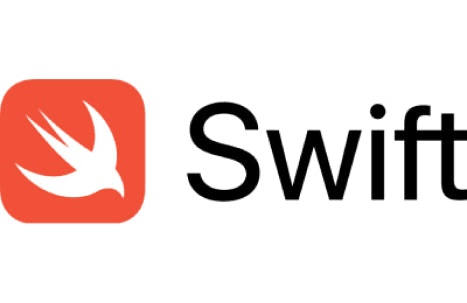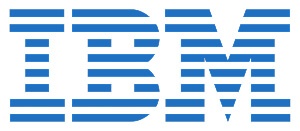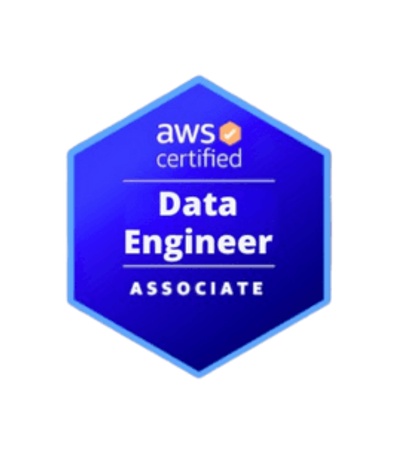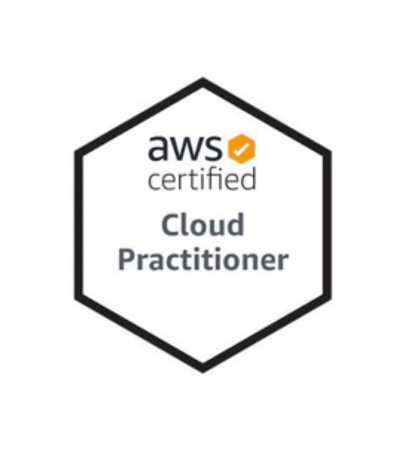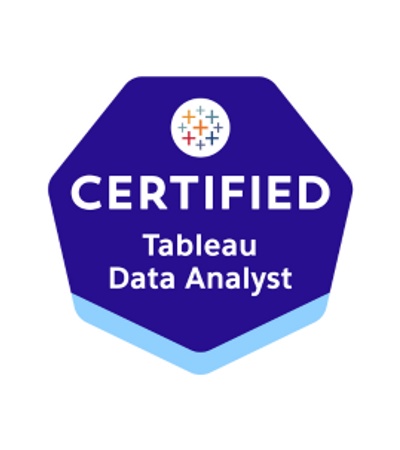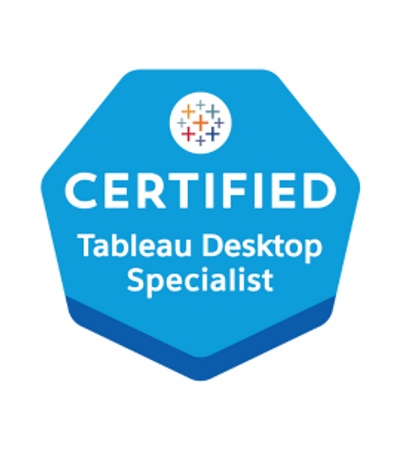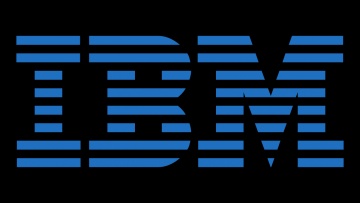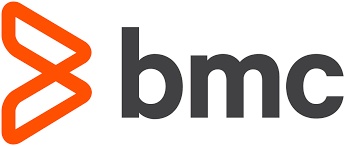
Master in Business Analytics and Data Science
Master in Business Analytics and Data Science
Empowering Your Path to Success
Empowering Your Path to Success
The Master in Business Analytics and Data Science molds future data scientists ready to help their companies become data-driven businesses by extracting relevant insights from data and using advanced analytics and the power of AI to drive decision-making processes.
They are professionals who are capable of rethinking and rebuilding processes, products, and services by applying machine learning & AI to solve user problems.
It is delivered in two formats so you can choose the option that best fits your lifestyle:
- Full-Time 11-months (immersive year in Madrid and international destination).
- Part-Time 17 months (online with face-to-face periods in Madrid and an international destination).

WANT TO KNOW MORE?
The Most Complete Program: What Sets Us Apart
The Most Complete Program: What Sets Us Apart
At IE School of Science and Technology, our master’s programs are designed to be truly transformative, blending academic excellence with unparalleled real-world opportunities. Here’s how we ensure a unique and impactful experience for our students:
Global Expertise, Diverse Perspectives
Learn from an international faculty of industry leaders and top-tier academics who bring a wealth of real-world insights to the classroom.
Personalized Mentorship
Benefit from a dedicated tech-industry mentor who guides you through your professional journey and connects you to valuable networks.
Industry-Recognized Certifications
Earn certifications valued by top employers, elevating your expertise and enhancing your competitive edge in the job market.
Hands On Projects
Engage in capstone projects, datathons, and hackathons as hands-on experiences where you tackle real-world challenges and create meaningful impact.
Immersion Week
Jumpstart your experience with an intensive immersion week that sharpens your skills, fosters collaboration, and sets the tone for your program.
Professional Internships
Gain invaluable hands-on experience through internships with leading companies, preparing you to hit the ground running post-graduation.
Specializations and Focused Electives
Tailor your studies with electives and concentrations that align with your goals, allowing you to deepen expertise in areas that matter most to you.
International Exchange Opportunities
Broaden your horizons with international exchanges, immersing yourself in new markets, cultures, and cutting-edge innovations.
Sustainability-Focused Certification
Earn a sustainability certification as part of your program, equipping you to drive meaningful impact in a responsible and sustainable way.
Dedicated Career Services
Work closely with our Careers Department, which offers personalized career support and helps connect you with global job opportunities.
Research & Innovation
Engage in research opportunities, such as the capstone research projects with full-time faculty, or collaborations with our Impact Xcelerator, enabling you to explore cutting-edge areas, deepen your expertise, and create real-world impact.
Venture Lab
Bring your ideas to life in our Venture Lab, where you’ll receive mentorship, resources, and support to build and launch your own venture.
ONE PROGRAM, TWO FORMATS
ONE PROGRAM, TWO FORMATS
- OUR IMMERSIVE FULL-TIME PROGRAM INCLUDES:
- Engaging face-to-face classes.
- Group meetings and presentations.
- Hands-on simulations and in-person debates.
- Access to resources, such as the Venture Lab and the IE Library.
- Classes at our Madrid location in the fast-paced city center.
- To top it off, an immersion week in an international destination will bring you closer to your business future in action.
- OUR FLEXIBLE PART-TIME PROGRAM INCLUDES:
- A dynamic blend of virtual and on-site learning.
- 24 hour access to IE’s Online campus.
- Live sessions on Saturdays and interactive video conferences.
- Asynchronous online discussions every week from Monday to Thursday.
- Four weeks of in-person sessions delivered in the heart of Madrid, one week of face-to-face sessions in an international destination.
- Unlimited access to the latest research & online press.
FULL-TIME PROGRAM - EXPLORE THE MASTER IN BUSINESS ANALYTICS AND DATA SCIENCE
FULL-TIME PROGRAM - EXPLORE THE MASTER IN BUSINESS ANALYTICS AND DATA SCIENCE
- START MODULE
- CORE PERIOD
- ELECTIVE PERIOD
- CAPSTONE PROJECTS
- MAKE THE MOST OF YOUR PROGRAM
- Pre-program
- Foundations Week
- TERM 1
- TERM 2
- TERM 3
- CONCENTRATIONS
- EXCHANGES
- INTERNSHIPS
- Electives
- CERTIFICATIONS
- MENTORSHIP PROGRAM
- INTERNATIONAL EXPERIENCES
- TECH INITIATIVES
- ACADEMIC ESSENTIALS
- COMPANY VISITS
- START MODULE
- CORE PERIOD
- ELECTIVE PERIOD
- CAPSTONE PROJECTS
- MAKE THE MOST OF YOUR PROGRAM
*Please note that our program content is continually updated to remain in sync with market demands. Therefore, we advise you that the content is subject to change and it can be dependent on student demand.
PART TIME PROGRAM - EXPLORE THE MASTER IN BUSINESS ANALYTICS & DATA SCIENCE
PART TIME PROGRAM - EXPLORE THE MASTER IN BUSINESS ANALYTICS & DATA SCIENCE
- START MODULE
- CORE PERIOD
- ELECTIVE PERIOD
- CAPSTONE PROJECTS
- MAKE THE MOST OF YOUR PROGRAM
- Pre-program
- Foundations Week
- TERM 1
- TERM 2
- TERM 3
- CONCENTRATIONS
- EXCHANGES
- INTERNSHIPS
- Electives
- CERTIFICATIONS
- MENTORSHIP PROGRAM
- INTERNATIONAL EXPERIENCES
- TECH INITIATIVES
- ACADEMIC ESSENTIALS
- START MODULE
- CORE PERIOD
- ELECTIVE PERIOD
- CAPSTONE PROJECTS
- MAKE THE MOST OF YOUR PROGRAM
*Please note that our program content is continually updated to remain in sync with market demands. Therefore, we advise you that the content is subject to change and it can be dependent on student demand.
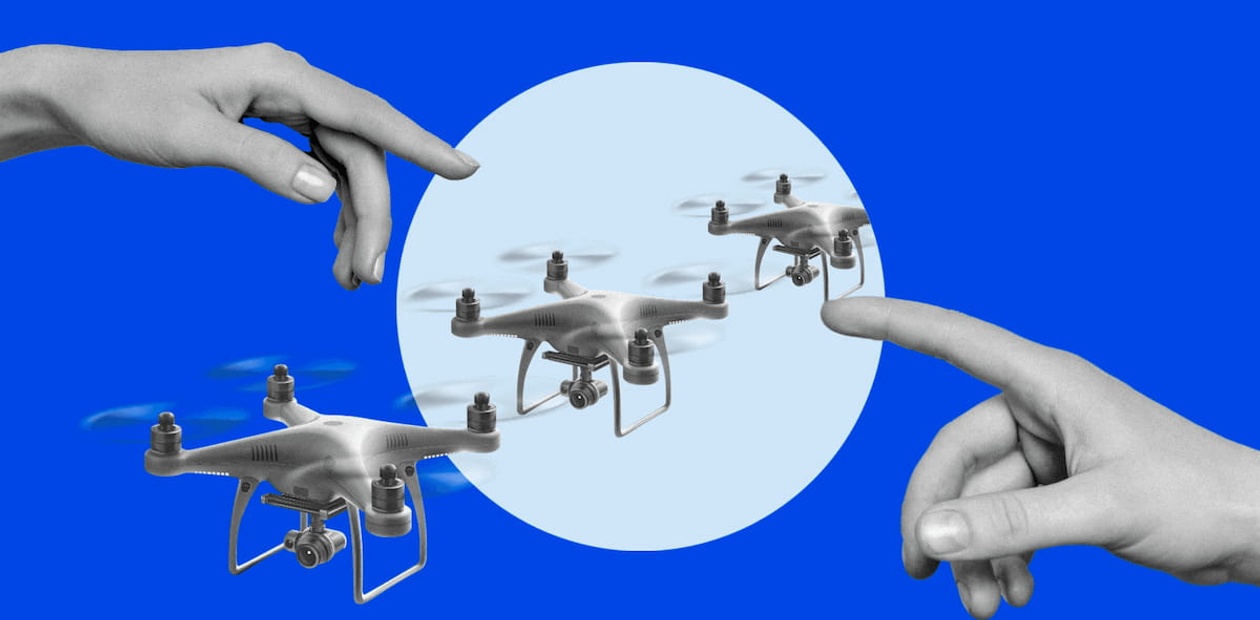
Unmanned Aerial Systems: Study the future of drones
WHAT’S THE PART-TIME FORMAT LIKE?
WHAT’S THE PART-TIME FORMAT LIKE?
This 17-months program is both online and face-to-face—in other words, it’s liquid. We align and combine the best of technology, pedagogy and our world-class faculty, so you can experience multi-layered learning in a multi-faceted environment.
Online periods – Through our virtual campus, you get a challenging and highly interactive educational experience. The well-structured, faculty-led sessions fit into the modern professional’s busy schedule and can be accessed anywhere there is an internet connection. Engage with other global professionals in synchronous and asynchronous sessions including interactive small groups where you work on real-world, industry-based case studies.
Live Sessions – On Saturdays
You will connect to live video conference sessions engaging with your peers and professors in real time, discussing previously established topics for the week. These sessions are truly an extension of the traditional classroom experience, allowing you to negotiate and collaborate with your classmates in the same space, despite connecting from all over the globe.
Asynchronous online discussions
The forums allow you to participate in the faculty-led asynchronous sessions every week from Monday to Thursday. Professors will moderate these written discussions about chosen topics in order to achieve the learning objectives.
Face-To-Face Periods
Face-To-Face Periods
Get to know your diverse classmates even more through all-day workshops and classes that further develop your soft skills and teamwork. Explore Madrid after class and get to know your peers on a deeper level.
Roughly five weeks
Of full-time course work and networking with your peers in the heart of the Spanish capital, spread throughout the duration of the program.
International destination
One week of face-to-face sessions in International Destination.
Program Tools and Techniques
Program Tools and Techniques
From data analytics and visualization platforms to programming environments and cloud solutions, you’ll learn to use key tools that enable you to develop the advanced skills today’s leading tech-driven companies demand.
Databases
Read more >Programming & Environments
Read more >Modern Data Architectures
Read more >Cloud Computing
Read more >Data Visualization & BI
Read more >Machine Learning & AI
Read more >Automation & Workflow
Read more >
STUDENT PROJECTS
STUDENT PROJECTS
Student projects are a core component of the Master in Business Analytics and Data Science. Throughout the program, students work on real-world challenges from companies and startups, applying advanced techniques in data analytics, machine learning, business intelligence, and data-driven strategy. These hands-on experiences strengthen technical expertise while fostering creativity, problem-solving, and business acumen. By bridging the gap between analytics and decision-making, the projects enable students to build a strong professional portfolio and prepare them to make an impact in today’s data-powered economy.
private equity advisory ai tool
Climate-informed modelling of health risk
Client prioritization for route optimization at Pascual
Detecting sexist language in Spanish social media using NLP models

CONTINUE YOUR JOURNEY AT UC BERKELEY WITH THE MASTER OF ENGINEERING
CONTINUE YOUR JOURNEY AT UC BERKELEY WITH THE MASTER OF ENGINEERING
Take your professional journey even further with the option to pursue the UC Berkeley Master of Engineering (MEng), offered by the Fung Institute for Engineering Leadership.
After completing the Master in Business Analytics and Data Science, eligible students may continue their studies at UC Berkeley. This pathway provides access to Silicon Valley's entrepreneurial and innovation ecosystem and a global network of engineering leaders driving impact through technology.
By combining advanced data analytics from IE University with cutting-edge engineering training at UC Berkeley, both programs equip you with a powerful blend of technical and leadership skills to design innovative solutions, lead high-impact projects, and shape the future of tech-driven industries.

ADVANCED TECH TRACK
ADVANCED TECH TRACK
Throughout your program, you may be invited to join the Advanced Tech Track, an exclusive initiative designed for top-performing students at no additional cost. This specialized track offers advanced sessions on cutting-edge technology topics, industry visits, and personalized mentorship opportunities.
As part of the experience, students will delve into advanced technical expertise in topics such as generative AI, one of the most in-demand skills in today's technology landscape. Upon successful completion of the Advanced Tech Track, you will receive a diploma and micro-credentials, enhancing your profile and competitiveness in the tech job market.
TECH COLLABORATIONS
TECH COLLABORATIONS
The Master in Business Analytics and Data Science offers a variety of professional certifications to expand your technical knowledge of data science and AI applications and enhance your practical skill set. We provide numerous resources to help you prepare for the requisite examinations at the end of your certification, including in-class sessions with relevant topics embedded in the program curriculum, as well as select electives to focus your learnings.
Additionally, you also have access to self-paced online courses and additional tutoring sessions to further boost your expertise. Students can tailor their certification examinations to their specific goals.
IE School of Science and Technology became Official Center for:

OUR PARTNERSHIP WITH IBM
OUR PARTNERSHIP WITH IBM
Through this partnership, we are reinforcing our commitment to bridging the gap between academia and industry. By integrating IBM’s expertise and cutting-edge technologies into our academic ecosystem, students will gain direct exposure to real-world applications, hands-on experiences and industry insights, preparing them to lead in the rapidly evolving tech landscape.
PROFESSIONAL CERTIFICATIONS TO ADVANCE YOUR CAREER
PROFESSIONAL CERTIFICATIONS TO ADVANCE YOUR CAREER
At IE University, we are at the forefront of technological innovation, which is why with this program you will benefit from the collaboration with companies that lead this technological disruption in today's world.
AMAZON WEB SERVICES ACADEMY
Read more >MICROSOFT LEARN
Read more >AWS CERTIFIED DATA ENGINEER
Read more >AWS CERTIFIED CLOUD PRACTITIONER
Read more >CERTIFIED TABLEAU DATA ANALYST
Read more >CERTIFIED TABLEAU DESKTOP SPECIALIST
Read more >IE CERTIFICATE IN FOUNDATIONS OF SUSTAINABILITY
Read more >

GLOBAL EXCHANGE OPPORTUNITY AT IENYC
GLOBAL EXCHANGE OPPORTUNITY AT IENYC
IE New York College (IENYC), our new Manhattan campus, offers cutting-edge facilities and a prime location in the world’s leading business hub—connecting students with New York’s top professional and innovation networks.
As part of the program, you’ll have the opportunity to do an exchange at IENYC during your third term, allowing you to take elective courses while gaining hands-on experience with cutting-edge practices, expanding your international network, and strengthening your academic profile with a global perspective.

Exchange experiences with IE School of Science & Technology
Exchange experiences with IE School of Science & Technology

Tech Immersion Week: discover all it has to offer
Tech Immersion Week: discover all it has to offer

Berkeley Immersion Week
Berkeley Immersion Week
Attend talks on emerging technologies, innovation, start-ups, leadership, and various skills like networking, product management, fundraising, etc.
Explore the hands-on opportunities of Berkeley Immersion Week through the perspectives shared by the Managing Director and Chief Learning Officer at the Sutardja Center for Entrepreneurship & Technology (SCET).
Real-World Data Challenges
Real-World Data Challenges
DATATHONS
Companies from various industries will provide your team with real data sets, and you will have to uncover actionable insights and drive innovation.
DATA SCIENCE COMPETITIONS
At the end of each period, you will have the opportunity to compete against other students in an individual Kaggle-style competition that will put what you’ve learned to the test.

Transform Ideas into Ventures
Transform Ideas into Ventures
Joining our master's programs at IE School of Science and Technology opens the door to the exciting world of entrepreneurship through our Venture Lab. This unique opportunity empowers students to transform their innovative ideas into successful ventures with the support of experienced mentors, industry experts and a vibrant entrepreneurial community.
Leading Companies Behind the Program
Leading Companies Behind the Program
At IE University, we believe the best way to learn is by doing. Thanks to our collaborations with industry leaders, students tackle real challenges and consulting projects—applying their knowledge in real time while building valuable connections that open doors to top-tier companies. Here are some of the companies that collaborate with the program:
Frequently asked questions
What does a master of science in business analytics entail?
The Master in Business Analytics and Data Science is a holistic program that covers four key areas: business transformation, data science, data science technologies and professional skills. It comprehensively covers emerging tech that’s now critical in business such as AI, machine learning and deep learning, as well as the soft skills you’re going to need during your career journey.
What do i need to know for a master in business analytics?
Students of the business analytics master program typically come from business, quantitative and tech backgrounds. But the most important things you'll need when studying our master's degree are a desire to handle large quantities of data to add value to your organization, and a keenness to get to grips with AI.
WHAT SHOULD I STUDY FOR DATA SCIENCE?
Ideal academic backgrounds for the Master in Business Analytics and Data Science will cover Finance, Management or Marketing and Economics. Similarly, Mathematics, Statistics or Social Science backgrounds will be valuable, as will tech knowledge such as computer science or IT management. Similarly, Mathematics, Statistics or Social Science backgrounds will be valuable, as will tech knowledge such as computer science or IT management.
Which degree is best for a data scientist?
For aspiring data scientists, the Master in Business Analytics & Data Science at IE School of Science & Technology puts you at a great advantage. This specialized program offers a comprehensive education in data analysis, data visualization and business analytics, all of which are critical for a successful career in data science. The program’s focus on technical skills and business application equips you with the skills to handle complex data challenges and make data-driven decisions.












